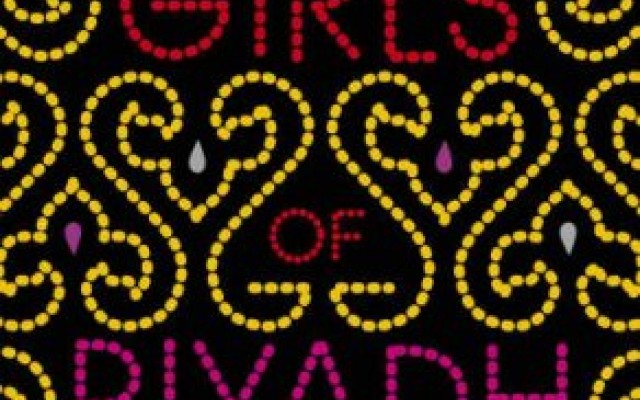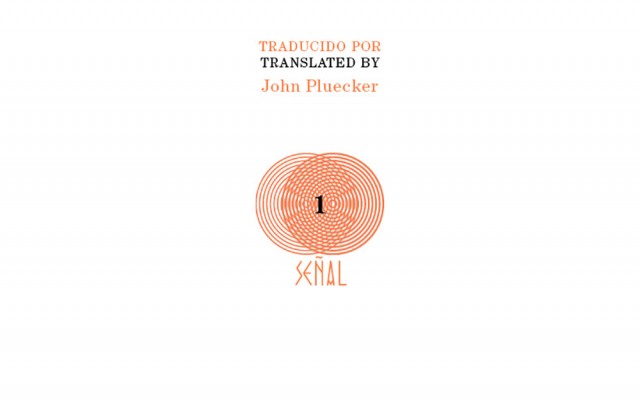On Antonia Pozzi

Amy Newman’s translations of Antonia Pozzi’s poems appear in the Spring 2018 issue of Exchanges: “Invitation.”
In his review of The Faber Book of 20th Century Italian Poems, Oliver Burckhardt considers the anthology’s paucity of women poets in light of “their neglect by the Italian literary establishment of the time.” He singles out Antonia Pozzi:
The poetry of Antonia Pozzi (1912-38) was published in 1939 following her suicide, but as [Eugenio] Montale and other critics have pointed out, far from being a naive or spontaneous voice, her work, written over a ten-year period, shows a definite progression and dialogue with the main currents of the poetry of the time, especially with the early hermetic strand. The omission of her voice from the present anthology is perhaps its most obvious lacuna.1
I was unfamiliar with Antonia Pozzi. Born in Milan in 1912, she lived a brief life, dying by suicide in 1938. She lived during a powerful time in Italian history. It’s true that her work is significantly underrepresented in translation; it is for the most part associated with Lawrence Venuti’s Breath, and in the UK, Peter Robinson’s Poems. She left among her papers diaries, notebooks, and over 300 poems. Her poems would be altered by those who desired to present her in what they perceived as the best light. First her father would censor the work, and then Eugenio Montale would offer praise that unwittingly illustrated the cultural predicament of women writers of her time and beyond.
In her poems and letters, Pozzi is a representative woman of her era. She wants to be a good daughter and granddaughter, and she dreams of becoming a mother, yet, as she has a vital attachment to her art as well, she is in conflict. The state of the world and growing fascism, coupled with her intense emotions, lead her at times to consider herself mentally ill, and she leans toward her poetry first as a “way to truth” and then, throughout her life, in complex ways, varying between worrying that poetry is an “escape” and holding it up as an ideal.2
In Pozzi we see an essential early to mid-20th–century female experience similar to that with which we associate poet Sylvia Plath: recognizing that her gender poses challenges to her goals, a woman navigates the path between achievement and resignation.
Consider this excerpt from a letter written in 1930 to Antonio Maria Cervi:
È terribile essere una donna, ed avere diciassette anni. Dentro non si ha che un pazzo desiderio di donarsi. Ha ragione lei di dire che le donne non valgono niente. Noi vediamo prima, ma i nostri occhi si chiudono anche prima. Scorgiamo le vette, ma, se qualcuna vi arriva, è perché ha in sé molto di virile.3 (It’s terrible to be a woman and to be seventeen. Inside there is only a crazy desire to give. You are right to say that women are worth nothing. We see first, but our eyes are closed even before. We glimpse the peaks, but if someone gets there, it’s because she has a great deal of virility.)
Sylvia Plath echoes this perspective in her journals two decades later:
Being born a woman is my awful tragedy. From the moment I was conceived I was doomed to sprout breasts and ovaries rather than penis and scrotum; to have my whole circle of action, thought and feeling rigidly circumscribed by my inescapable femininity.4
Critic David Perkins writes that since “poets’ expression depends…on literary tradition and convention, the personally experienced that cannot be articulated within the current poetic mode may not be articulated at all.”5 The poetic mode of Pozzi’s time was male, so even criticism meant to celebrate her work subtly locates her as less-than. For example, Montale means to laud her when he describes Pozzi’s work in his essay published in Il Mondo in 19456:
A musical soul and easily lost on the sonorous wave of sensations, Pozzi was already moving beyond the stumbling block of feminine poetry, the obstacle that makes so many men doubt the very possibility of a woman’s poetry… [emphasis mine]
Praising an artist for managing to avoid falling into the trap of her gender reveals the pervasive—and to be charitable, at times unconscious—bias. A woman working on the individuality of her artistic voice at the same time she is studying her predominantly male tradition is bound to feel like an outlier, and to be occasionally befuddled. Rebecca West contends that Pozzi’s work had been potentially “assimilate[d] … entirely to the dominantly male tradition” and that even though Montale attempted to rescue her “beyond the stumbling block of feminine poetry” he “falls prey to a maschilist perspective.”7 Yet Montale is merely writing in the vernacular of the admiring critic, a vernacular in which Pozzi (who had been a member of the Banfi group at the University of Milan along with poets like Vittorio Sereni) would have fluency. Pozzi and any one of the scores of women writing in such times and under such circumstances must have experienced this unspoken artistic conflict as maddening.
After her death, Pozzi’s father Roberto published 91 of her poems in a private edition (Mondadori, 1939), but these poems were his own versions, his revised editions of her work: lines were cut, references to suicide deleted. He removes the title and all but three lines from “Inizio della morte” (“Beginning of death”), including the final three lines as an untitled fragment on its own page. (Nora Wydenbrook, who translated several of these revised poems in her 1955 John Calder/London edition, appended these three lines, following an asterisk, to the end of “Saresti Stato.”) From “Rossori,” he removes 28 of the poem’s original 52 lines. In “Odore di Fieno,” he removes the word “impura” from the line “tremolano nella mia anima impura” so that the speaker does not possess an impure soul.8 In “L’allodola” he removes the opening phrase “Dopo il bacio,” to delete the kiss. In fact, he scrubs any evidence of Antonio Maria Cervi, the important figure in her life who was first her teacher and then lover. (Although she and Cervi had plans to marry and have children, her father did not approve of the relationship and eventually forbade it. However, the two continued the relationship in secret for several years until it ended in 1933.) Antonia dedicates several of her poems to Cervi; Roberto Pozzi removes every dedication.
Perhaps the most egregious edits are his revisions to “Saresti Stato,” from the sequence Pozzi wrote after her relationship with Cervi ended. In “Saresti Stato” (“You’d Have Been”) she addresses her unborn child9 whom the two planned to name Annunzio10 after Cervi’s brother Annunzio, who had died in the war. Roberto Pozzi removes the second stanza entirely:
|
In te sarebbero |
In you |
Further, the original poem opens with a direct address to the unborn Annunzio:
|
Annunzio |
Annunzio |
Roberto Pozzi alters the line by changing the “z” in “Annunzio” to a “c” so that what would be recognized as a name changes to the word “Annuncio.” This reads more as “announcement” or “herald,” and would not be more obviously associated with the given name Annunzio.
Was this an honest correction of a perceived error in spelling on Roberto Pozzi’s part? There is ample evidence in her letters and her diaries of the couple’s plans and of their devotion to Annunzio’s memory. In a letter to Cervi from February of 1932 Antonia wrote: “E non ti ricordi di quel che abbiamo sognato, della creatura nostra, del nostro nido, del nostro sonno, della sua piccola voce?” (“And don’t you remember what we dreamed of, of our child, of our nursery, of our sleep, of his little voice?”)12. A fragment of a letter to Cervi dated May 5th, 1933 contains these lines: “E tu che mi hai parlato come ad un’estranea - a me - al tuo amore, Antonello - alla mamma del tuo bambino” (“And that you spoke to me like a stranger – to me – to your love, Antonello – to the mother of your child.”)13. As Roberto Pozzi edited much of her work (including her suicide note) this sleight-of-hand with Annunzio’s name appears to be willful misdirection on his part.
In 1955, Nora Wydenbruck’s translations of these posthumously revised versions of Pozzi’s poems reproduce a “bowdlerized” and “sanitized” edition of the original work for English readers.14 It would not be until 1989 that editors Alessandra Cenni and Onorina Dino restored the poems to their original form in Parole, an authoritative text of Pozzi’s poetry, the most recently revised edition of which is Tutte le opera (2009), edited by Cenni.
“Antonia Pozzi’s poems,” writes Wallis Wilde-Menozzi,
touch me as if I were holding a bird (not a wounded one, though), struggling to break out of my hands. I feel some fright and much life wanting to circle in the air: The prick of pushing claws, wings that work—vivid signs of warm vitality—and then resignation, by going still. But before the stillness, many penetrating flights have taken place.15
Wilde-Menozzi captures Pozzi’s work as I feel it: the valor and dreaming beauty, with its struggle, and its sharp, keen, exquisite life force.
1. Oliver Burckhardt, first published in Quadrant [49:5, (2005) 68-71]
2. Rebecca West, “Antonia Pozzi (1912-1938).” Italian Women Writers: A Bio-bibliographical Sourcebook, edited by Rinaldina Russell, Greenwood Press, 1994, p. 336.
3. Antonia Pozzi. Ti scrivo dal mio vecchio tavolo... Lettere 1919-1938, edited by O. Dino, G. Bernabò. Ancora Editrice, 2014, p. 91.
4. Sylvia Plath. The Unabridged Journals of Sylvia Plath, edited by Karen V. Kukil, Anchor, 2000, p. 77.
5. David Perkins. A History of Modern Poetry: From the 1890s to the High Modernist Mode, Belknap Press, 1979, p. 268.
6. Eugenio Montale. “Parole di poeti,” Il Mondo, 1 December 1945, p. 6.
7. West, p. 340.
8. Lawrence Venuti. Breath: Poems and Letters, Wesleyan, 2002, p. xii.
9. “It is not clear whether Pozzi was ever pregnant or if, instead, this unborn child is an entirely literary creation. Suor Onorina Dino, the keeper of Pozzi’s manuscripts, the editor of all the extant publications of Pozzis work, and a staunch defender of Pozzi’s supposed Catholic beliefs, insists upon the latter interpretation. On the other hand, Alessandra Cenni, the author of Pozzi’s biography In Riva alla Vita, allows for the possibility of the literal existence of an aborted child conceived during her relationship with Cervi.” Amber Godey, Sister Souls: The Power of Personal Narrative in the Poetic Works of Antonia Pozzi and Vittorio Sereni, Fairleigh Dickinson University Press, 2011, pp. 79-80.
10. “Avrebbe desiderato dare un bambino ad Antonio Maria Cervi per compensarlo dell'inconsolabile lutto per la morte dell fratello Annunzio, poeta, caduto giovanissimo in guerra. Il bambino avrebbe infatti dovuto chiamarsi Annunzio.” ([Antonia Pozzi] would have liked to give a child to Antonio Maria Cervi to make up for the inconsolable loss of the death of Cervi’s brother Annunzio, a poet who died very young during the war. In fact, the child would have been called Annunzio.” In “Note.” Antonia Pozzi: Tutte le opera, edited by Alessandra Cenni, p. 609.
11. Antonia Pozzi: Tutte le opere, edited by Alessandra Cenni, Garzanti, 2009, p. 324.
12. Pozzi, Ti Scrivo, p.141.
13. Ibid, p. 166.
14. “The poems of Antonia Pozzi.” Thea Lenarduzzi, Times Literary Supplement, 24 February 2012.
15. Wallis Wilde-Menozzi. “The Poems of Antonia Pozzi,” Notre Dame Review, No. 36, Summer/Fall 2013, p. 177.
Image: Courtesy of Amy Newman



